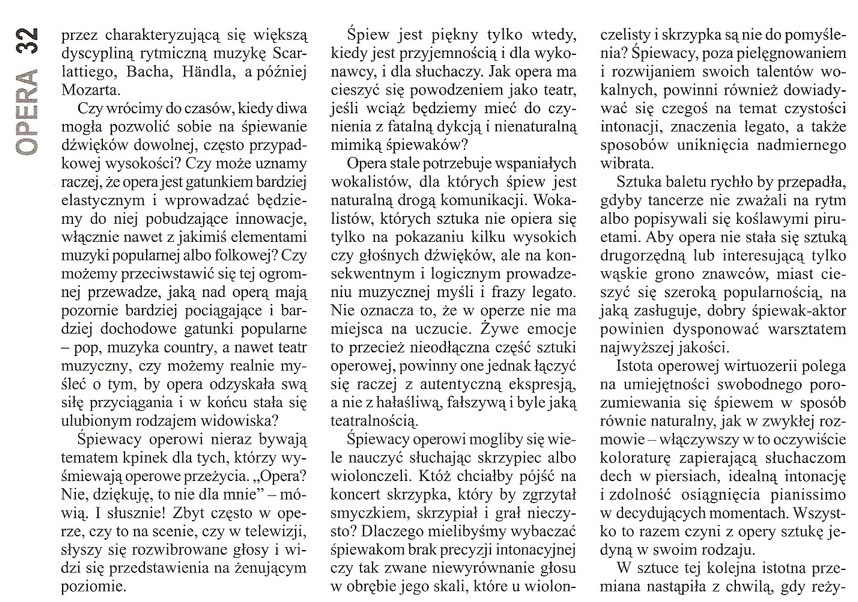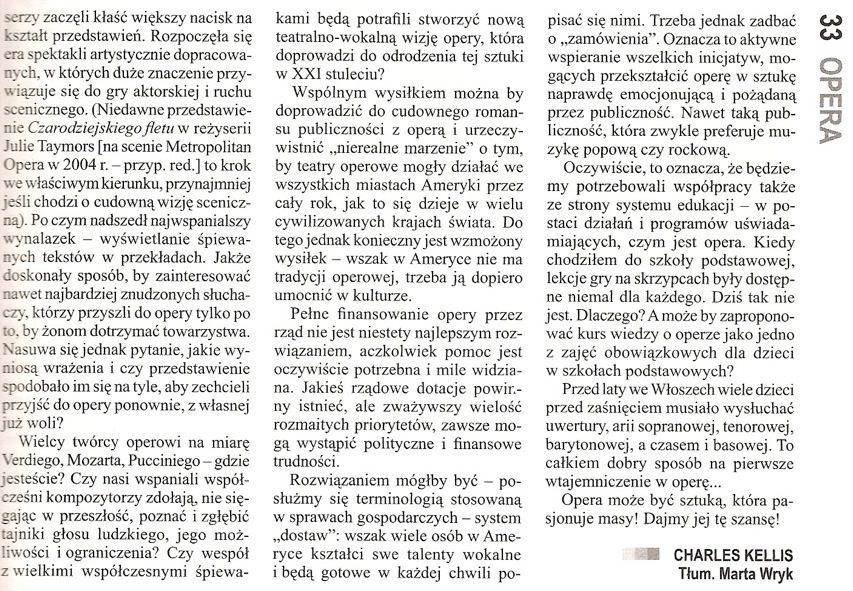CHARLES KELLIS


TWOJA MUZA (June - July) 2013/English


FRANCESCA DA RIMINI
by Charles Kellis
How could an opera go unnoticed for so long with such luminous literary stars as Dante and D'Annuncio? Versions by Rachmaninoff , Riccitelli or Leoni??? are almost relics of historical oblivion. Zandonai's, "Francesca da Rimini" has only infrequently been performed since its debut in Milano in 1913? and since the single last performance at the Met was in 1984 ---the obvious question becomes, why?
The story was adapted by the prolific writer, poet and playwright, Gabrielle D'Annuncio taken from Dante's "Inferno", part one of the "Divine Comedy". The plot depicts deception, love, adultery and ultimately, murder. Sound familiar? Italian Opera libretto by Tito Ricordi. Yes, the Ricordi of Italian opera publishing fame, weaving a tale of love and lust for the beautiful Francesca by the three Malatesta brothers ---Paolo, Gianciotto and Malatestino.
Paolo, sung by the tenor Marcello Giordani, and Francesca, portrayed by the soprano Eva-Maria Westbroek are seen at the end of the first act in an almost Wagnerian "love at first sight" extravaganza without the love potion. This sequence, "senza parole" describing the powerful picture of silent amorous attraction, was wonderfully accompanied on the cello by Jerry Grossman. The original instrument "viola pomposa", a viola with five strings, reportedly invented by Bach and featured in Bach's Suite in D major, is no longer in great demand. Instead, the cello solo was remarkable in its unusual musical portrayal, almost speaking the words, in place of the usual love duet that normally would have been the conventional choice.
The second of the brothers, Gianciotto, the cripple, became Francesca's husband by default. She was tricked into marrying him, believing instead that it would be Paolo the handsome knight. OPERATIC LICENSE? The plot thickens as the third brother, Maletestino, also lusting after Francesca, is thwarted in his advances and conspires with Gianciotto to catch them together in their illicit affair. The last act actually finds the two lovers in her bedroom. With a rather casual Italian mafioso, operatic gesture ---they are both stabbed to death. Final curtain!!
The soprano, Eva-Maria Westbroek, was in her best Isolde voice as Francesca.
She portrayed her role with passion and strong commitment. Not a "piano" in sight. An obvious Wagnerian soprano, she seemed to have some trouble articulating Italian diction. Until she later calmed down, her excessive vibrato was musically unsettling. After a long period of warming up, however, she did manage to also display some more appealing control.
Marcello Giordani seems to be progressing with each of his new roles.
Usually singers either get better or else they get worse as they continue their career. He certainly is one of the good ones. Even though the orchestra was overpowering, he still happily sounded in good form with his ardent, expressive composure. He seemed to embody the part of Paolo, the handsome knight, standing firm as the enraptured lover, while the cello played on. This scene stood out as the most impressively memorable, wonderfully mixing the sensuous sound of the cello with the lovers, transfixed on each other as in a trance.
Was it the sensuous music of Zandonai, or was it the over conducting of Armiglato that made the orchestra overpower most of the singers? And I'm speaking of powerhouses like Westbroek, and Giordani. I believe the orchestration was so overall embracing with powerful instrumentation that the conductor just had a hard time trying to manage easily accommodating the singers. Zandonai, living in the period right after Wagner, Strauss and Debussy showed distinct influences from all three. The music was more instrumentally enhanced with much passion and pathos but sometimes lacked the luxury of rendering a vocal accompaniment for the singers. That was part of the problem. There were very few places for the singers to express more intimate singing without the orchestra covering them.
Seeming to want to emulate some Wagner marathons, Zandonai stumbles on the fact that his music ---although it has some smoldering romantic passages that can be quite beautiful, together with various strategically imposed firecracker effects--- is not highly original. It becomes a smattering of many composers of his time, a little Strauss a little Debussy a lot of Wagner and even a bit of Puccini who may have been one of his early mentors. He also seemed to be, trying too hard to achieve too much, throwing in every bit of extraordinary available material, trying to make this opera most sensationally unusual. He also included instruments actually playing on stage, introducing a trumpet duo, the cello and also another guitar like lute.
The first act was adorned by Ezio Frigerio as a lovely springtime setting that made you want to jump right in and be part of this idyllic classical atmosphere. The second and third acts, however, were a poor representation of a battlefield on a clumsily designed centerpiece looking like a misplaced elevator shaft used to enact feigned warfare, with fake guns firing, and arrows flying---together with a staircase whose utility seemed designed to enable the action to be closer to the center of the stage. An unusual setup that was more trouble than what it hoped to accomplish.
The baritone, Marc Delavan, singing with good, mellow tone, was the crippled brother, Gianciotto. who was effective in his vacillating role as the loving but "cornutto" husband, easily manipulated by his younger brother in the killing of Francesca and Paolo.
Malatestino, on the other hand, the youngest Malatesta with only one eye, like a Cyclops, seemed to be the only one who was actually able to see and grasp everything that was happening around him. Robert Brubaker was an outstanding actor who helped make the action a little livelier. His voice cut through the Met orchestra with incisive clarity and projection. It would be interesting to hear him singing something other than a character role. Through his sneering and powerfully convincing portrayal, was a voice of excellent quality.
I see now, however, why this opera is not performed regularly. It is very slow moving and the action is somewhat static. It is longer than it needs to be, and in its length, loses dramatic impact. Another possible reason for its being doomed to relative obscurity may lie with the openly flagrant depiction and overt demonstration of adultery. Of course, it did end with the justification that "crime does not pay" ---since the lovers were actually killed in the end--- but, could it have caused grief and embarrassment for the Vatican throughout the first half of the 20th century?
It may also, however, be precisely why it has now been brought back from a long sleep, because of the 21st century operatic appetite for some more sensationalism in order to spice up the operatic market place.
FINE




